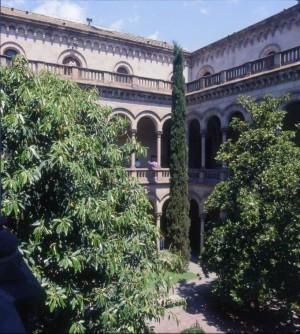No headline provided

October 27, 2009
The workshop, held on Thursday 1 and Friday 2 October 2009 atthe University of Barcelona in Spain, started with a keynote by Dr.Ben White (British Library), emphasizing that we are at a crucialtime: norms are currently being set by different uses, governments,and technologies, and libraries have to find a way around suchdifferences in their on-going digitalisation efforts. It isimportant to get digital preservation right at economic, technicaland legal levels, otherwise we will not be able to build andpreserve our digital public domain. For instance, an analysys ofover 100 contracts revealed that most of them systematicallyundermine preservation right of libraries. It is imperative tofollow the lead of countries such as Ireland and Belgium: contractlaw cannot undermine exceptions to exclusive rights. Indeed, theBritish Library is currently in discussion with Wikimedia commonsfollowing the lead of the Bundesarchiv: they plan to use “socialcontracts” rather than a contractual framework such as a CreativeCommons license. Above economic copyright, there are other issuesto to be beared in mind, such as moral rights, religioussensitivities and other concerns of libraries that want people toknow that certain material comes from such libraries. [28oct09]
Then Dr. Raquel Xalabarder (Universitat Oberta de Catalunya)introduced the first session on National heritage preservation:legal issues & implications by recalling that exceptions andlimitations need to be checked with regards to new challengesraised by preservation and public access: how should they bedesigned, are they enough, for which purposes? In other words, itis hard to be locked up in previous centuries technologies, weshould make sure that libraries are equiped for current challengesand opportunities.
Dr. Milagros del Corral (Director of Biblioteca Nacional deEspa?±a in Madrid), made a presentation on Digital libraries andcopyright: towards balanced legal certainty in Europe. SinceCopyright has been pretty flexible throughout history in adaptingto the evolution of the society, today we have to push a positiveagenda instead of having a defensive, aggressive position becausecopyright holders and libraries need legal certainty. Thus, thecurrent work-in-progress at EU level is addressing the adaption ofsuch historical exceptions to the digital world – trying to strikea balance among the different approaches pursued.
Dr. Maja Bogataj (Intellectual Property Institute in Ljubljana,Slovenia) gave a presentation entitled Mandatory collectivemanagement in Slovenian Copyright Act. A mistake or an opportunity?While the mandatory collective management definition adopted inSlovenia is very broad, other sources think that mandatorymanagement is not a limitation but it could actually haveprotective effects. One of the possible solutions to thisbottleneck is to extend exceptions and limitations for filesharingand expanded collective licenses, like in Scandinavia. But thewhole issue should be reformed at EU level, maybe even introducingsuch formal requirements as an opt-in or an opt-out system.
Dr. Eug??nia Serra (General Coordinator of the Library ofCatalonia), presented The Library of Catalonia and public domain.There are over 3 million documents in the National Library ofCatalonia, and the copyright specifications are included in themetadata. The digitalisation has been selective, starting withworks in the public domain and works cleared by the respectiveright holders, while the library has a contract to get financialcosts of digitalisation covered by Google since 2007 for objects inthe public domain of their catalog, with no exclusivity clause.According to dr. Serra, authors should be payed but memoryinstitutions should also have granted their access to culture andknowledge.
The workshop progressed with several presentations of specificprojects, including Dr. Georg Eckes (Deustches Filminstitute inFrankfurt, Germany) who introduced EFG – A Gateway to Film Heritagein Europe, a project aimed at building a digital showcase forcollections of Europe’s films and cinematheques pointing to contenton other websites as an aggregator. While pointing out thatarchives need to become conscious and take a position related tocopyright issues, he stressed again the need for balance betweencitizen interest to use and reuse and commercial interests of therightholders.
Among other speakers, Dr. Alice Keefer (University of Barcelona)addressed the digital preservation issue: while many technicaltools are available, strategic policies are implemented only in afew institutions. And finally Dr. Victoria Reich (Director ofStanford University’s LOCKSS) talked about Preserving the PublicDomain. She detailed their distributed digital preservaiton systemaimed at preserving any content already available the web.






















Leave a Comment